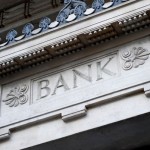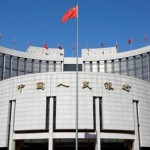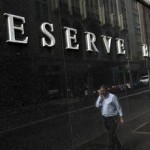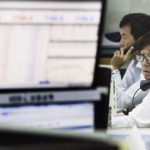Traders’ Phones Are Becoming a Zone of Total Surveillance

At large banks, regulatory requirements and new technology change how conversations are conducted
Wall Street has a message for its traders: Watch what you say.
At large banks in the U.S. and Europe, traders’ everyday activities are being recorded and monitored more often than ever before. Lately, banks and their regulators have focused on perusing the minutiae of phone conversations traders have each day with colleagues, competitors and customers.
Years ago, many traders learned to be circumspect about what they wrote in emails, texts and electronic chat rooms. But the phone until recently was a bit of a haven, a place to build rapport and negotiate details of trades.
Now, technology and regulatory requirements are making the phone a zone of total surveillance as well, with conversations constantly recorded and sometimes automatically transcribed for examination. Some bank executives and traders said they have toned down humor or shortened conversations on the phone, while others are increasingly using electronic trading venues that don’t require as much chat. Meanwhile, meeting in person has increased in importance because that is one of the few means of communication where regulators can’t eavesdrop.
The added surveillance comes in part from the U.S.’s Dodd-Frank financial-overhaul law, passed in 2010, which mandated that firms start using text and audio recordings to reconstruct details about certain trades in the derivatives market. The rules, which have been going into effect in recent months, require that firms must keep the recordings for one year.
Previously, such recordings were done by many trading desks voluntarily or according to a patchwork of regulations that varied by asset class. Now, surveillance is more systematic across the board at large financial institutions. “We have seen a 100% increase in the volume of audio data recorded and analyzed by banks,” said Brandon Daniels, president of legal and compliance consultant Clutch Group.
To flag which conversations are meaningful and which ones are just noise, regulators and internal bank watchdogs must filter through piles of jargon and digressions on everything from sports to office politics to lunch plans. They also must learn to translate piles of head-scratching terms—from “bip” to “yard” to “monkey”—that have specific meaning to traders.
A major driver to record more trader dialogue comes from banks’ desire to stay out of regulatory cross hairs. In recent years, big banks have agreed to pay more than $11 billion to settle allegations tied to rigging market benchmarks.
Next to the mortgage crisis, trading abuses have become one of the costliest areas for banks. “It’s not a pretty environment,” said Michael Karp, chief executive of Wall Street recruiting firm Options Group. As banks “make sure that their people are being policed the right way…a lot of the guys are probably thinking twice about whether they’re in the right profession.”
The stakes were raised last week when the Justice Department said it would begin cases by targeting individuals in corporate investigations.
The U.S. government is using audio recordings in probes examining whether bond traders at different Wall Street firms crossed the blurry line between salesmanship and misleading customers, according to a person familiar with the investigation.
Two Deutsche Bank AG traders, Aaron Greenberg and Joseph Reardon, were fired in June after the bank reviewed communications with customers, including phone records, in response to a regulatory request for information on certain bond-trading practices, regulatory records and the person familiar with the situation said. Messrs. Greenberg and Reardon, who haven’t been accused of wrongdoing by regulators, didn’t respond to requests for comment.
Transcripts of calls recently emerged in other Wall Street cases. This summer, prosecutors played recordings of former UBS Group AG trader Tom Hayes in a U.K. court to help show he manipulated interest rates. In one clip, Mr. Hayes allegedly coached his half-brother, then a junior trader at HSBC Holdings PLC, how to move a rate. “Just say: If you can set a low yen three-month Libor, you’d really help my brother out,” Mr. Hayes said on the recording. Mr. Hayes was found guilty and sentenced to 14 years in prison.
Firms including Credit Suisse Group AG, J.P. Morgan Chase & Co., Goldman Sachs Group Inc. and UBS are using enhanced software to track what their employees are saying, according to people familiar with the banks, sometimes customizing the software to parse the specialized lexicon of words that different trading desks use across the world.
Banks’ audio monitoring is becoming sophisticated enough to recognize different accents, according to Clutch Group. That is especially prevalent as banks focus more on currency traders during and following large regulatory settlements. For instance, some software and consultants noticed “euro” can sound like “your,” and “quid,“ used to discuss the British pound, can sound like ”quick.”
Another challenge for the banks: determining when a phrase such as “call me on my mobile” suggests a desire to conduct a trade away from the bank’s compliance systems or when it might just be for convenience, such as when the person is leaving the office for the day, said Cromwell Fraser, a director of communications surveillance at NICE Actimize, which does audio recording and analysis for large banks.
Overall, compliance-market spending, including communications, is expected to increase to about $2.6 billion in 2015 from $2.43 billion in 2014 and continue increasing at a similar pace in 2016, according to a June report from research firm TABB Group. Communications compliance spending alone tallied $783.5 million in 2014, according to the report.
Another important plank in banks’ strategy is to discourage troubling conversations in the first place. “You may not realize it, but right now, because of regulatory scrutiny, all your communications may be reviewed,” Deutsche Bank executive Colin Fan said in an internal 2014 video that was later published on several websites. “This includes your emails, your conversations and your conduct. Think carefully about what you say and how you say it. If not, it will have serious consequences.”
Source: WSJ – Traders’ Phones Are Becoming a Zone of Total Surveillance





























